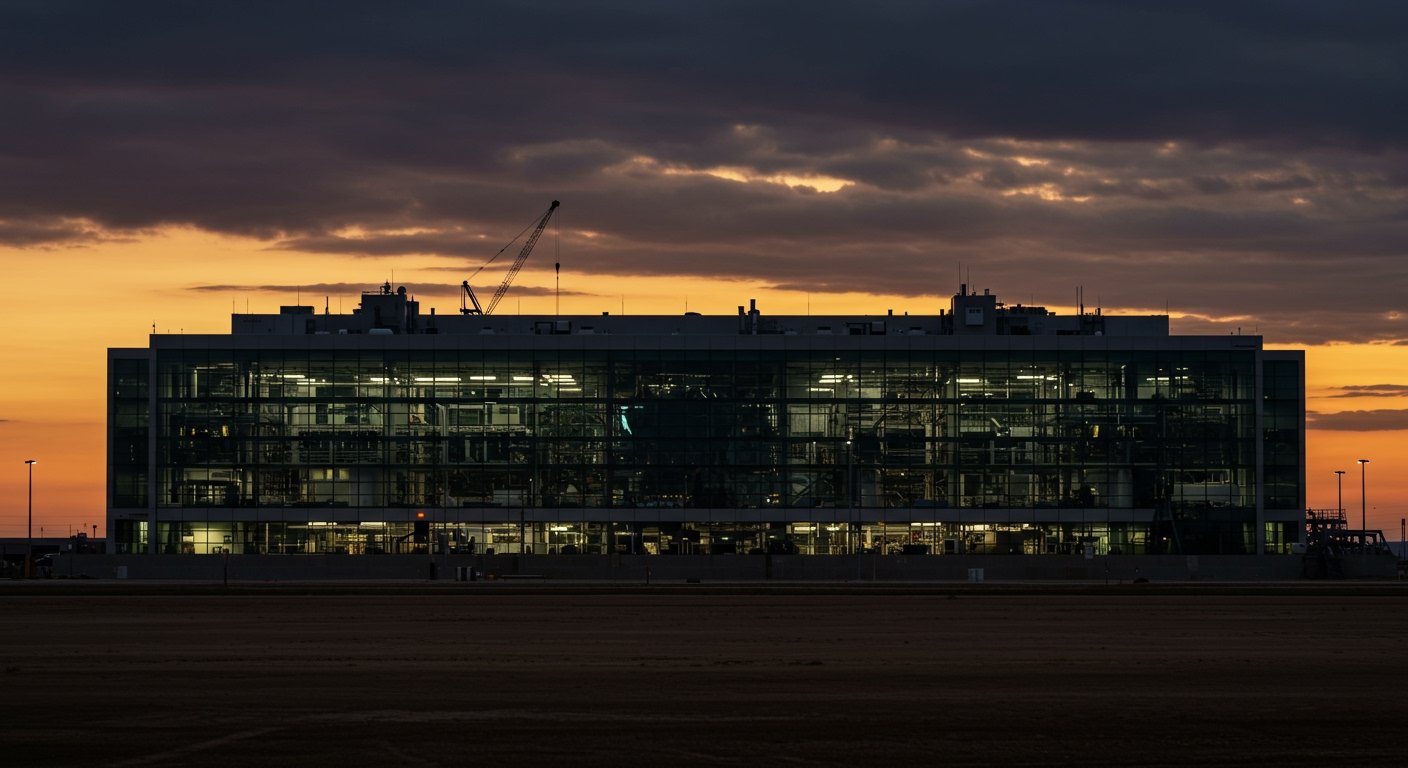Austin, Texas – Samsung Electronics is reportedly facing a significant delay in the launch of its anticipated advanced semiconductor manufacturing facility in Taylor, Texas. The postponement is primarily attributed to challenges in securing sufficient customers for the factory’s planned chip production, according to recent reports citing sources familiar with the matter.
The multi-billion dollar project, a cornerstone of Samsung’s global expansion and a key component of efforts to bolster domestic chip production in the United States, is now expected to commence operations later than initially planned. While construction is nearing completion, the crucial step of filling the facility’s capacity with customer orders appears to be the primary bottleneck.
Construction Nears Completion, Timeline Shifts
As of March, construction on the sprawling Taylor, Texas facility was notably advanced, reaching 91.8% completion. This indicates that the physical structure and likely much of the internal infrastructure are largely in place. The initial target date for the facility’s operational readiness was set for April 2024.
However, a subsequent filing made by Samsung with South Korea’s financial regulator in May indicated a revised timeline. This filing pushed the project’s expected completion deadline back significantly, now targeting the end of October 2025. This substantial revision underscores the depth of the challenges Samsung is currently navigating regarding the facility.
Demand Weakness and Strategic Pivots
Sources suggest that the delay stems fundamentally from weaker-than-anticipated demand in certain segments of the semiconductor market and evolving technological requirements from potential clients. The original plan for the Taylor facility centered around the production of advanced 4nm chips. While 4nm technology remains important for specific applications, industry trends and customer needs have rapidly shifted, with increasing focus on even more advanced nodes like 2nm for cutting-edge applications, particularly in the burgeoning field of artificial intelligence (AI).
Recognizing this shift, Samsung reportedly intends to upgrade the facility’s capabilities to include 2nm production. This strategic pivot aims to align the factory’s output with future market demand and attract high-profile customers seeking the most advanced silicon.
The Challenge of Securing Major Clients
Despite securing some customers – including a domestic South Korean client and a Japanese AI chip design company – Samsung has reportedly not yet landed major global technology clients for the Taylor facility’s output. This stands in contrast to its primary rival, Taiwan Semiconductor Manufacturing Company (TSMC), which has successfully attracted commitments from leading global tech firms for its new fabrication facilities in the United States and elsewhere.
The competitive landscape in the foundry market, where companies manufacture chips designed by others, remains highly challenging. Data from the first quarter of 2025 highlights the significant market share disparity, with TSMC holding a dominant 67.6% share compared to Samsung’s 7.7%. This underscores the uphill battle Samsung faces in winning large-scale orders from the world’s biggest chip buyers.
Path Forward: Subsidies and Customer Acquisition
Industry analysis suggests that the Taylor facility could potentially begin limited production sooner if government subsidies and tax incentives, such as those provided through the U.S. CHIPS Act, are fully secured and utilized. However, achieving substantial scale-up and making the massive investment economically viable ultimately depends on Samsung’s ability to attract and sign major customer contracts.
TrendForce, a market research firm, indicated that initial production might be possible with the support of incentives, but cautioned that significant capacity utilization relies heavily on winning key customer engagements. The delay provides Samsung with additional time to refine its process technologies, particularly for the planned 2nm upgrade, and intensify its sales efforts to secure the necessary client base.
Broader Implications for Semiconductor Manufacturing
The situation in Taylor highlights the complexities inherent in building and ramping up cutting-edge semiconductor fabrication plants. Beyond the technical hurdles, securing consistent, high-volume customer orders is a critical challenge, especially in a competitive market influenced by global economic conditions and rapid technological evolution.
The reported delay also underscores the strategic importance of the Taylor facility, not just for Samsung’s internal goals but for broader initiatives aimed at diversifying the global semiconductor supply chain and increasing manufacturing capacity outside traditional hubs. The successful operation of facilities like Samsung’s in Texas is seen as vital for economic security and technological leadership.
Reports detailing the delay and the underlying challenges have appeared in various publications, including Tom’s Hardware, Nikkei, and ZDNet, citing informed sources within the industry.
Samsung has not issued an official statement explicitly confirming the delay or providing detailed reasons, but the revised timeline filed with regulatory bodies and the reports from multiple sources point to a clear adjustment in the project’s trajectory. The focus now shifts to how quickly Samsung can attract the necessary customers and bring the advanced Texas facility online to contribute meaningfully to its semiconductor foundry business and the global chip supply.






